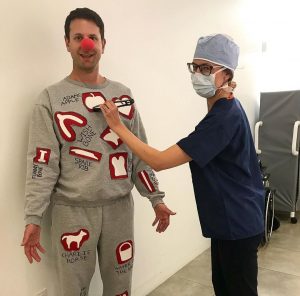S.H.E. Summit takes over the Upper East Side of NYC
November 1, 2017
Corporate and social leaders as well as advocates gathered at the 92nd Street Y in the Upper East Side for the annual S.H.E. Summit on Oct. 19 and 20.
Started by Claudia Chan in 2011, the conference is a part of an initiative to achieve gender equality by 2030, according to shesummit.com.
S.H.E. Summit is intended to educate its attendees on corporate diversity and leadership, gender inequality in the workplace and the steps necessary to achieving equality in the corporate and social sphere.
“We can no longer wait for traditional leaders to effect the change we see,” Chan said during her keynote address. We have to be the leaders.”
The conference is an offshoot of S.H.E. GLOBL, “a corporate initiative that helps… companies modernize… their diversity initiatives,” according to the organization’s mission statement.
Past speakers have included singer Kelly Clarkson, photographer Nigel Barker and U.N. Ambassador Samantha Power.
This year, the summit had a diverse array of over 50 speakers including actors Sophia Bush (“Chicago P.D.,” “One Tree Hill”) and Matt McGorry (“How to Get Away with Murder,” “Orange is the New Black,”) former NFL player Wade Davis, the first female NFL coach Dr. Jennifer Welter, founder and CEO of The Li.st Rachel Sklar and television commentator Gretchen Carlson.
The conference included 27 panels on varying topics, from “The New Men’s Movement: Redefining Strength and Vulnerability” to “Relevance & Resiliency: How to Build a Life Devoted to Advancing Women & Girls.” The sessions were split up with networking breaks intended to stimulate conversation and working relationships.
While all the speakers were chosen to give his or her perspective on a wide range of topics through differing expertise, there was one thing they could all agree on: change will not happen on its own, and everyone needs to be a willing agent for that change if anything is going to happen.
“We need to speak up,” Ann Rosenburg, senior vice president and global head of SAP Next-Gen, said. “We need to be a part of this. Make it a priority.”
Welter spoke on the panel for “Driving Progress in Male Dominated Fields” alongside Kara Goldin, the CEO and founder of Hint, Inc. and Jeri Ward, the senior vice president and chief communications officer for Audi of America. The panel was moderated by Kristin Bellstrom, the deputy digital editor of Fortune.
“I feel like I grew up in a male dominated environment,” Welter said in regards to playing and coaching professional football. According to The Washington Post, women make up nearly 45 percent of the NFL audience. So, why is the industry lacking in women?
“From the business perspective, it’s like ‘Duh!’” Welter said. “I was the first [female coach], but I didn’t want to be the last.”
Employees from Adidas, the Samsung Group and other big name corporations were in attendance. While the conference is centered on the corporate sphere, the speakers did make a point to stress the significance of these lessons to those who are entering the workforce now and in the future, such as college students.
The conversation is spreading throughout all corporate spheres, with more focus being called to gender and diversity inequality.
“I was asked to give a training on sexism and homophobia for a team and I normally only get about 45 minutes,” Davis said on diversity development in the NFL. “We were there in that meeting for 2 and a half hours. So that speaks to the guys actually wanting to talk about this. I think that in itself is progress.”
The speakers had suggestions for how the next generation can begin to incite the change needed to prepare the next generations for a more diverse workforce.
“The men in charge in these business cultures… a lot of these guys have never had a course in managing in a diverse workplace,” Dr. Jackson Katz, founder and president of MVP Strategies, said. “These courses should be part of the core curriculum, not just an elective.”
Katz wasn’t the only one who saw the future of progress resting in the arms of college students and the next generation.
“My generation has created this mess in the world and it’s going to be your generation that picks up the pieces,” Michael Kaufman, public speaker on engaging men in gender equality, said. “So what do you do about it? I think it means organizing and learning to bring people together.”
The conference is sure to return with more speakers next year. Until then students should question how they want to approach the working world; with an open mind, or an open hand?


